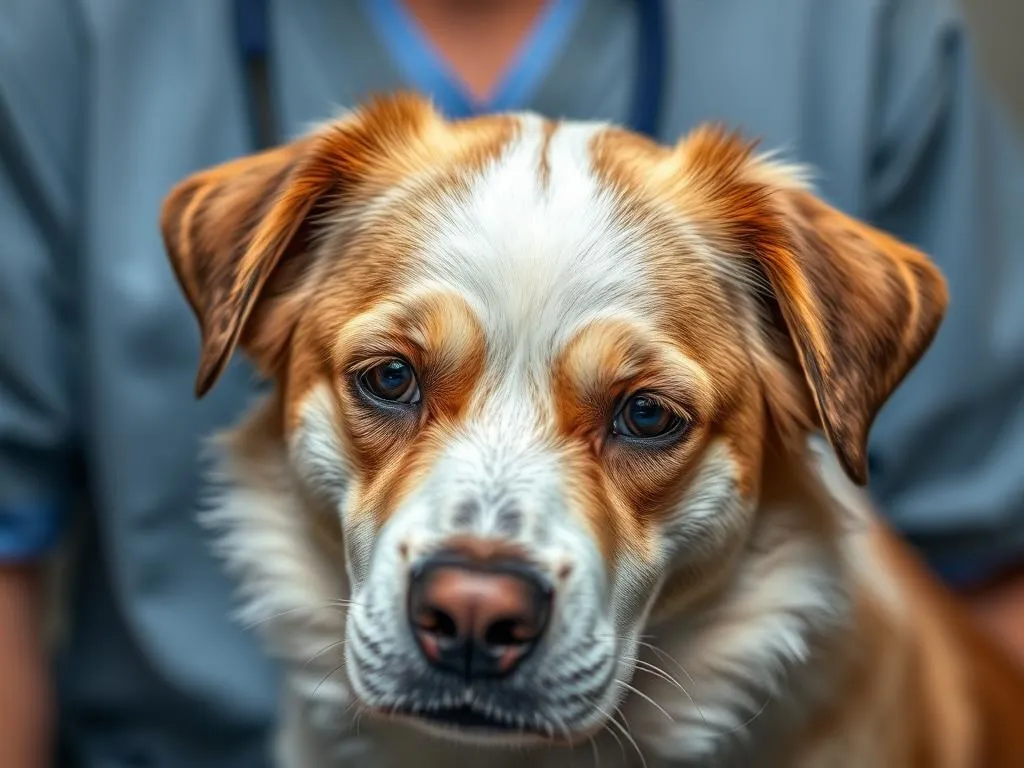
Pneumonia is a serious condition that can affect dogs of all ages, but it is often overlooked by pet owners. Pneumonia in dogs refers to the inflammation of the lung tissue, which can result from various infectious agents or environmental factors. Recognizing the symptoms early can be crucial for your dog’s health, as timely treatment can significantly improve recovery outcomes. In this article, we will explore what pneumonia is, its causes, symptoms, diagnosis, treatment options, prevention strategies, and when to seek veterinary care for your dog.
What is Pneumonia in Dogs?
Pneumonia is an inflammatory condition of the lungs, typically caused by infections or aspiration. In dogs, pneumonia can be classified into several types:
Aspiration Pneumonia
This occurs when food, liquid, or other foreign materials are inhaled into the lungs. It is often seen in dogs that are vomiting or have swallowing difficulties.
Bacterial Pneumonia
This type arises when bacteria infect the lungs. Common bacteria involved include Bordetella bronchiseptica and Mycoplasma species.
Viral Pneumonia
Viral pneumonia is caused by viruses such as canine parvovirus or canine influenza. These infections can compromise the lung’s defenses, making it easier for secondary bacterial infections to take hold.
Fungal Pneumonia
Fungal pneumonia is less common and is typically caused by inhaling fungal spores from the environment, such as those from Histoplasma or Aspergillus species.
Pneumonia develops when the lung tissue becomes inflamed, leading to fluid accumulation and impaired gas exchange. This condition can be life-threatening if not addressed promptly.
Causes of Pneumonia in Dogs
Several factors can lead to pneumonia in dogs, including:
Infections
- Bacterial Infections: The most common cause of pneumonia, often secondary to other respiratory illnesses.
- Viral Infections: Viruses can weaken the immune system, making dogs more susceptible to bacterial pneumonia.
- Fungal Infections: Rare but serious, often occurring in immunocompromised dogs.
Aspiration
Dogs can accidentally inhale food, liquids, or even their vomit, leading to aspiration pneumonia. This is particularly common in brachycephalic breeds due to their short snouts.
Environmental Factors
Exposure to pollutants, smoke, or hazardous substances can irritate the lungs, increasing the risk of pneumonia.
Underlying Health Conditions
Pre-existing respiratory issues, such as kennel cough or chronic bronchitis, can predispose dogs to pneumonia.
Risk Factors
Certain dogs are more susceptible to pneumonia:
- Age: Puppies and older dogs have weaker immune systems.
- Breed: Some breeds, especially brachycephalic breeds, are more prone to respiratory issues.
- Immunocompromised Conditions: Dogs undergoing treatment for cancer or other immune system disorders are at heightened risk.
Symptoms of Pneumonia in Dogs
Recognizing the signs of pneumonia in dogs is essential for early intervention. Common symptoms include:
- Coughing: Persistent cough that may produce mucus.
- Difficulty Breathing (Dyspnea): Labored breathing or rapid panting.
- Nasal Discharge: Mucus or pus may be visible.
- Fever: Elevated body temperature is common.
- Lethargy: A noticeable decrease in energy levels.
- Loss of Appetite: Affected dogs may refuse to eat.
Symptoms may vary depending on the type of pneumonia, but monitoring your dog’s behavior is key to early detection.
Diagnosis of Pneumonia in Dogs
If you suspect your dog has pneumonia, a veterinary examination is crucial. The diagnostic process typically includes:
Initial Veterinary Examination
The vet will perform a thorough physical examination, checking for signs of respiratory distress and other symptoms.
Diagnostic Tests
- Chest X-rays: Imaging helps to visualize the lungs and identify areas of consolidation or fluid accumulation.
- Blood Tests: These can indicate the presence of infection and assess overall health.
- Sputum Analysis: Analyzing mucus from the lungs can help identify the infectious agent.
Accurate diagnosis is vital for effective treatment, as the approach may differ based on the underlying cause.
Treatment Options for Pneumonia in Dogs
Treatment for pneumonia in dogs varies depending on the type and severity of the condition. Common treatment methods include:
Antibiotics
If bacterial pneumonia is diagnosed, antibiotics will be prescribed to combat the infection.
Antifungal Medications
For fungal pneumonia, specific antifungal drugs will be necessary.
Supportive Care
- Fluids: To prevent dehydration, especially if the dog is not eating or drinking.
- Oxygen Therapy: For dogs experiencing severe breathing difficulties.
Cough Suppressants and Expectorants
These may be used to help manage cough and facilitate the clearance of mucus from the airways.
Home Care Tips
- Provide a quiet, comfortable space for your dog to rest.
- Monitor their food and water intake, ensuring they stay hydrated.
- Follow the vet’s instructions regarding medication and follow-up appointments.
Regular veterinary visits are essential to monitor recovery and adjust treatment as needed.
Prevention of Pneumonia in Dogs
Preventing pneumonia in dogs involves several proactive measures:
Vaccination
Vaccines can protect against various respiratory infections, significantly reducing the risk of pneumonia.
Proper Nutrition and Hydration
A balanced diet and access to fresh water help maintain a strong immune system.
Avoiding Smoke and Pollutants
Keep your dog away from smoking areas and environments with heavy pollution.
Keeping Living Environments Clean
Regularly clean your dog’s living space to reduce exposure to dust, mold, and other allergens.
Regular Veterinary Check-ups
Routine check-ups allow for early detection of potential health issues, including respiratory problems.
When to Seek Veterinary Care
It’s important to know when to seek veterinary attention for your dog. Signs that warrant an urgent visit include:
- Severe difficulty breathing or gasping for air.
- Persistent coughing that worsens.
- High fever or lethargy that doesn’t improve.
- Loss of consciousness or severe weakness.
Delaying treatment can lead to complications, so prompt veterinary care is essential.
Conclusion
Understanding pneumonia in dogs is vital for every pet owner. By recognizing the symptoms, knowing the causes, and seeking timely veterinary care, you can help ensure your dog’s health and well-being. Regular veterinary check-ups, vaccinations, and attentiveness to your dog’s behavior will go a long way in preventing pneumonia and other respiratory issues.
FAQs about Pneumonia in Dogs
Can pneumonia in dogs be contagious?
Generally, pneumonia itself is not contagious, but the underlying infections that cause it, such as kennel cough, can be spread between dogs.
How long does it take for a dog to recover from pneumonia?
Recovery time varies based on the severity and type of pneumonia, but many dogs begin to improve within a week to ten days with proper treatment.
Are certain breeds more prone to pneumonia?
Yes, brachycephalic breeds (like Bulldogs and Pugs) are more prone to respiratory issues due to their anatomy, making them at higher risk for pneumonia.
What are the long-term effects of pneumonia in dogs?
Some dogs may experience lingering respiratory issues or reduced lung function after recovering from pneumonia, particularly if treatment was delayed.
Can pneumonia be prevented entirely?
While it may not be possible to prevent pneumonia completely, proper vaccination, good hygiene, and regular veterinary care can significantly reduce the risk.









